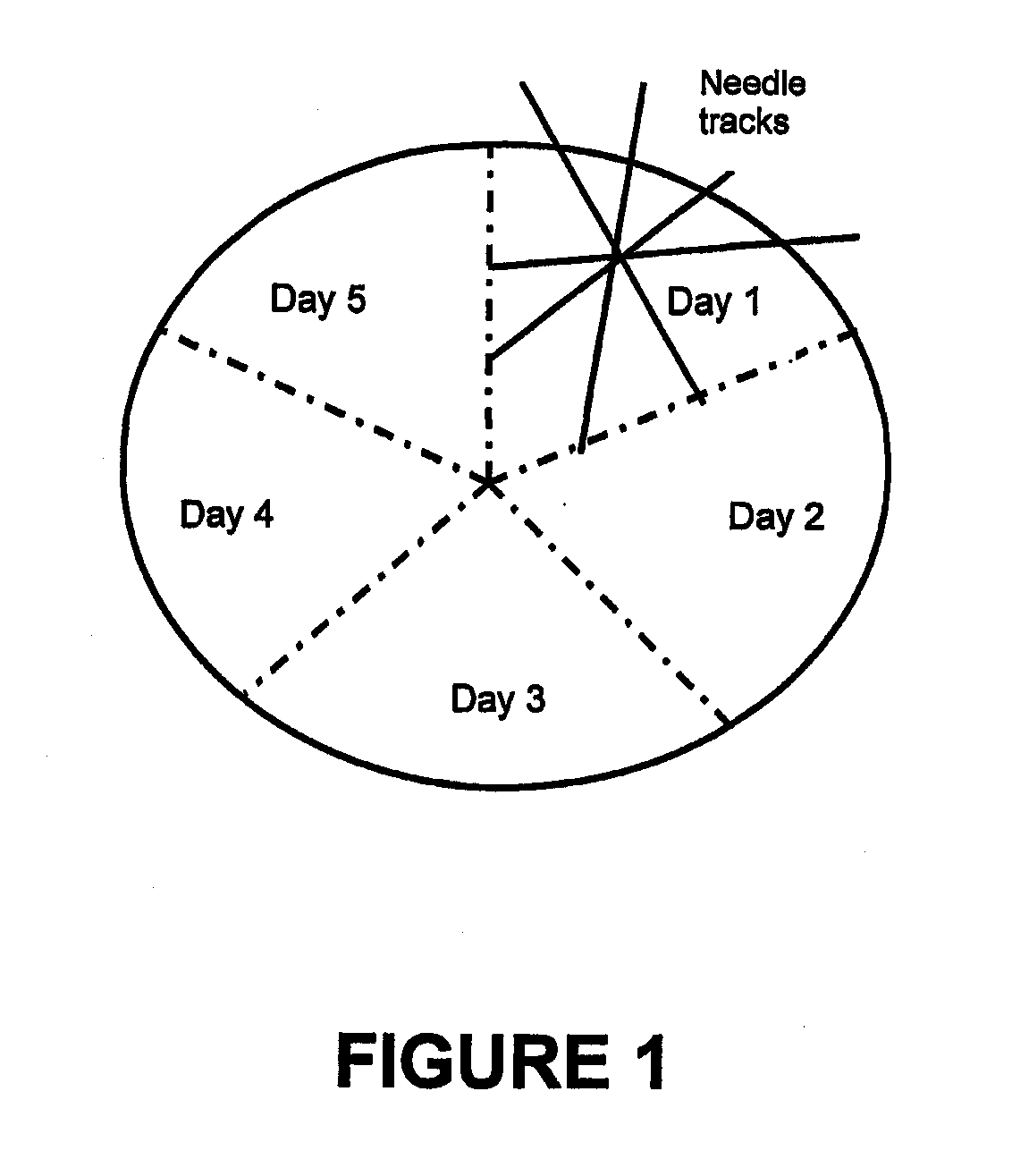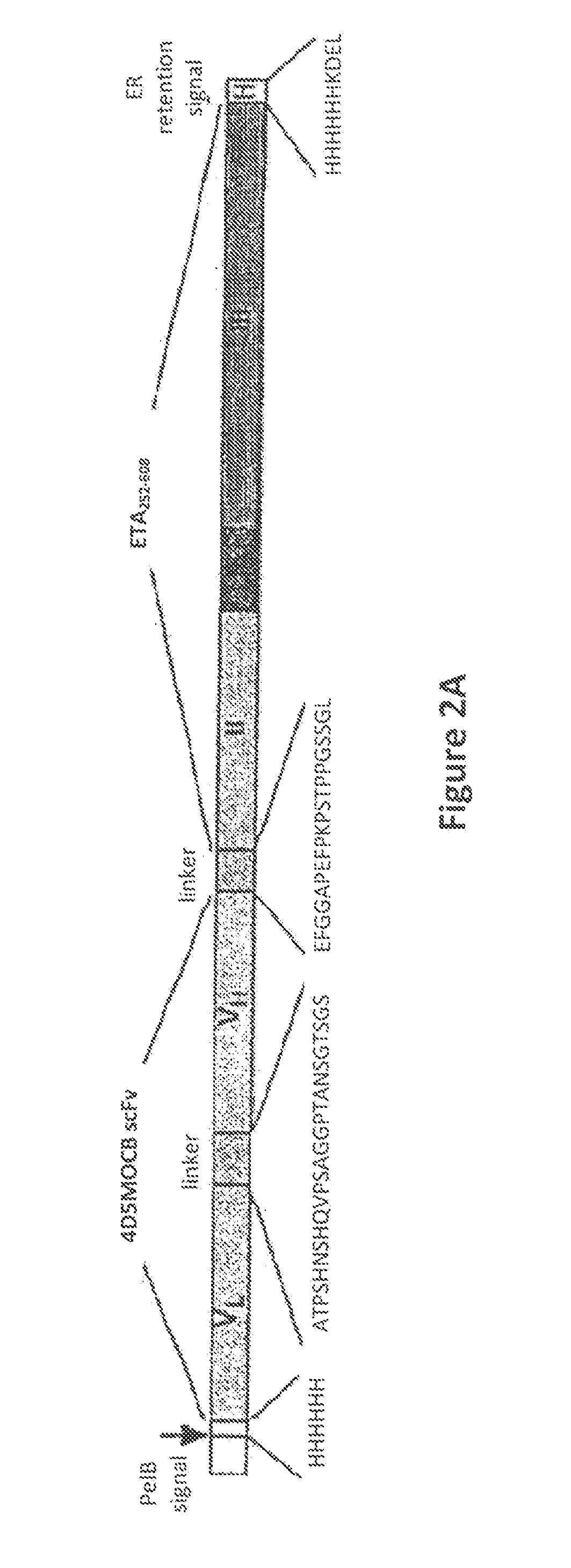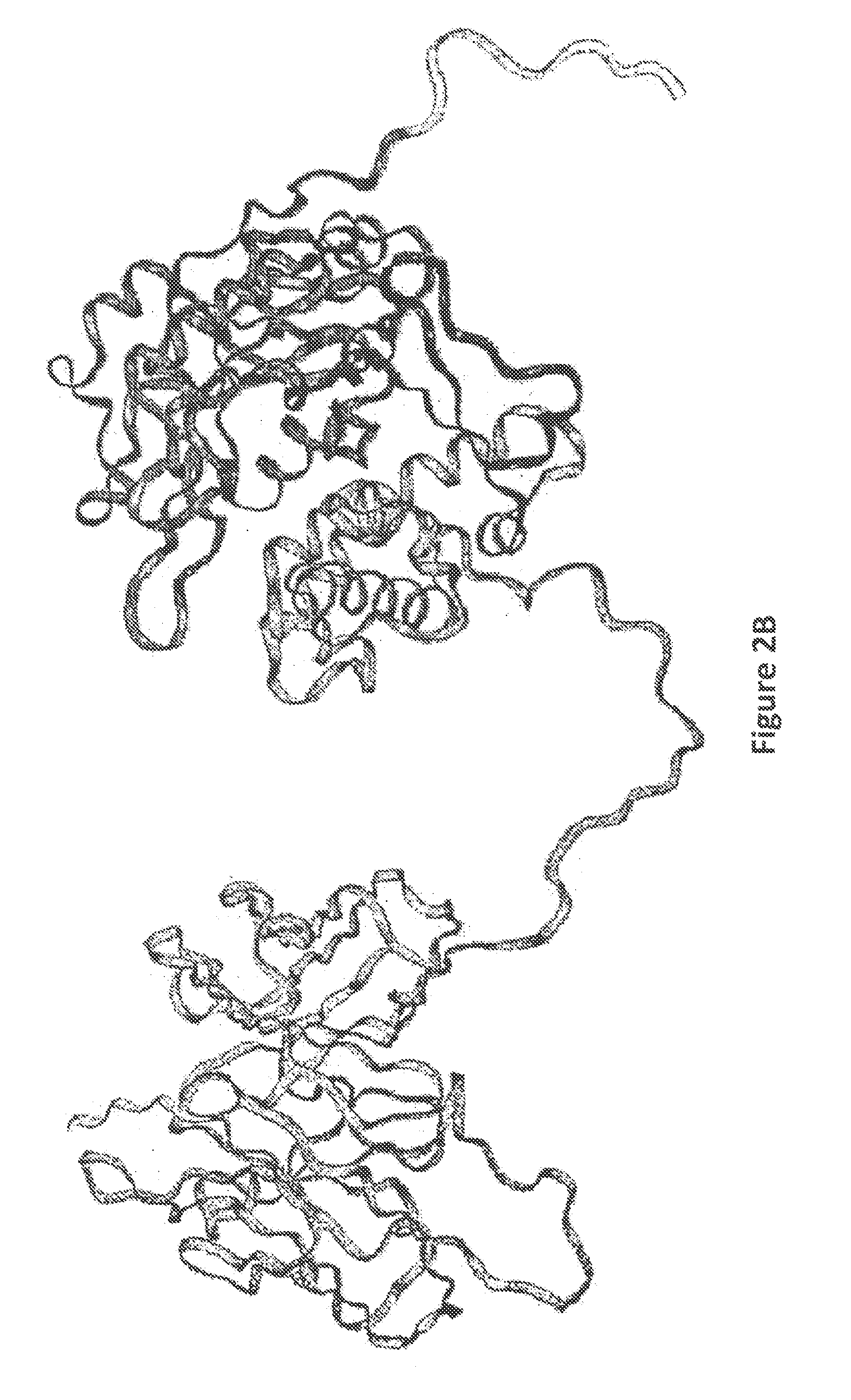Methods for Treating Cancer Using an Immunotoxin
a technology of immunotoxin and cancer, applied in the direction of antibody medical ingredients, peptide/protein ingredients, drug compositions, etc., can solve the problems of difficult and disfiguring palliative surgery, rare or beneficial radiation therapy, and chemotherapy does not substantially improve the survival rate of hnscc patients, so as to reduce the risk of post-surgical complications
- Summary
- Abstract
- Description
- Claims
- Application Information
AI Technical Summary
Benefits of technology
Problems solved by technology
Method used
Image
Examples
example 1
VB4-845 Immunotoxin
[0177]V134-845 is an immunotoxin comprised of a single-chain Fv recombinant human antibody fragment that is fused to a truncated form of Pseudomonas exotoxin A (ETA 252-608). The antibody fragment is derived from the humanized MOC31 single-chain antibody fragment, 4D5MOCB, which specifically binds to Ep-CAM.16-18
[0178]Exotoxin A is one of the toxic proteins released by pathogenic strains of Pseudomonas aeruginosa19. It is secreted as a proenzyme with a molecular weight of 66,000 daltons20. Exotoxin A is translocated into susceptible mammalian cells, where covalent alteration of the molecule renders it enzymatically active. Pseudomonas exotoxin A irreversibly blocks protein synthesis in cells by adenosine diphosphate-ribosylating a post-translationally modified histidine residue of elongation factor-2, called diphthamide, and induces apoptosis.4 The truncated version of ETA used in this construct, while still containing the domains for inducing cell death, lacks ...
example 2
Dosage Forms and Compositions
[0184]VB4-845 has been studied as a nascent drug and has been found to be effective in binding to tumor cell lines and in some model systems, preventing tumor growth. VB4-845 is formulated at 1 mg / ml in 20 mM sodium phosphate, 500 mM NaCl, pH 7.2, and can be administered by an intratumoral route with a 22-gauge needle. It is packaged in 1 ml borosilicate glass vials, closed with a gray butyl stopper and an aluminum overseal. Two fill sizes are currently available: 0.1 and 0.2 mL (0.1 mg and 0.2mg VB4-845, respectively). Drug is stored at −70° C. The final product is not preserved and is for single use only.
[0185]The sample product is labeled, stored, and shipped according to written and approved standard operating procedures. The product may be shipped under frozen conditions (e.g., on dry ice), and may be maintained, for example, at the study site in a limited access, controlled −70° C. freezer that is monitored regularly for temperature. The product m...
example 3
Stability of VB4-845
[0186]The shelf-life of the product when stored at −70° C. is at least six months. At physiological conditions (e.g., incubation of the drug product for four hours at 37° C. in PBS), the majority of the immunotoxin molecules (at least 91%) are still eluted as monomers of the appropriate molecular weight (approximately 70 kDa). The amount of VB4-845 slowly decreases with time with no less than approximately 47% of the initial protein being present in monomeric form after twenty hours at 37° C. Similar results were obtained upon incubation of 99mTc-labeled VB4-845 in human serum, further corroborating the suitability of the immunotoxin for in vivo application.
[0187]Short term stability studies have been conducted to evaluate the inherent stability of the investigational product under routine handling at the clinical site. VB4-845 was evaluated in its standard formulation at room temperature and at 2-8° C. In addition, VB4-845 was prepared in injection buffer of ph...
PUM
| Property | Measurement | Unit |
|---|---|---|
| concentration | aaaaa | aaaaa |
| concentration | aaaaa | aaaaa |
| concentration | aaaaa | aaaaa |
Abstract
Description
Claims
Application Information
 Login to View More
Login to View More - R&D
- Intellectual Property
- Life Sciences
- Materials
- Tech Scout
- Unparalleled Data Quality
- Higher Quality Content
- 60% Fewer Hallucinations
Browse by: Latest US Patents, China's latest patents, Technical Efficacy Thesaurus, Application Domain, Technology Topic, Popular Technical Reports.
© 2025 PatSnap. All rights reserved.Legal|Privacy policy|Modern Slavery Act Transparency Statement|Sitemap|About US| Contact US: help@patsnap.com



